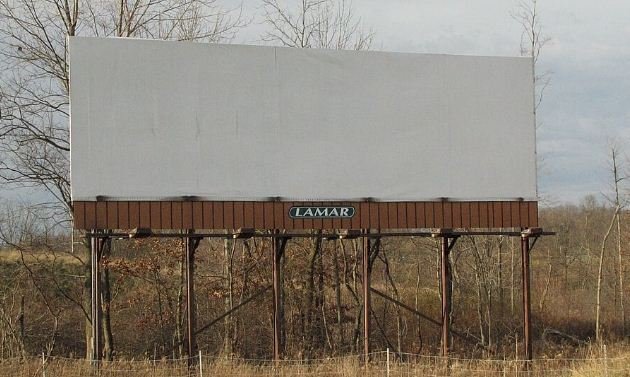Lamar Advertising is no ordinary billboard company. Behind its glowing digital signs lies a darker story — of political manipulation, environmental vandalism, and censorship — all in pursuit of profit and power.
Twisting Democracy for Billboards
Local laws are meant to control the size, brightness, and placement of billboards to protect safety and public space. Lamar has made it a mission to bend or break those rules. Courts from California to Rhode Island have repeatedly struck down its attempts to dodge zoning and permitting. In one notorious case, Lamar rebuilt a billboard destroyed by wind without permission, claiming “ongoing rights.” Judges disagreed, forcing the company back under local law.
These aren’t harmless technicalities. Oversized, glaring billboards distract drivers, obstruct sightlines, and scar landscapes. Instead of respecting limits, Lamar pressures city councils, donates ad space to friendly candidates, and negotiates backroom deals that let it tower over communities. Democracy shrinks as its billboards grow.
Censoring Speech by Executive Whim
Lamar doesn’t just sell ad space — it decides which voices are heard. And too often, those decisions mirror the personal beliefs of its executives.
When The Satanic Temple tried to post ads in Arkansas, Lamar rejected them as “misleading and offensive.” In Idaho, atheists were denied space for a simple message: “Imagine No Religion.” Meanwhile, controversial anti-abortion ads and other provocative messages have been displayed without hesitation.
This isn’t neutral business judgment. It’s viewpoint discrimination. By acting as gatekeeper over political and religious speech in public space, Lamar takes on a role more like censor than advertiser — wielding private power against public freedoms.
Poisoned Trees, Poisoned Trust
Lamar’s chase for visibility has scarred the environment, too.
In Florida, whistleblowers testified that workers were ordered to trespass, chop limbs at night, and poison trees blocking billboards. In Connecticut, Lamar destroyed 83 state-owned trees — oaks, maples, spruces — erasing a protective buffer. In Ohio, a couple sued after 34 of their trees were cut without permission. In Providence, subcontractors bulldozed more than 100 city-owned trees, forcing a costly replanting program.
Trees protect air quality, reduce noise, and provide shade — especially in poorer neighborhoods. Lamar treated them as disposable obstacles, collateral damage in the pursuit of visibility.
Corporate Influence in the Shadows
The picture is clear: Lamar doesn’t just advertise, it exerts political power. It donates billboard space to allies, sues relentlessly to overturn restrictions, and exploits vague rules and weak enforcement to its advantage. Even when caught, it often escapes with fines or settlements while the damage — to trees, communities, or democratic trust — lingers.
Why It Matters
When a single company controls what messages appear in public, bends laws for profit, and destroys the environment for visibility, the harm goes far beyond advertising. It strikes at democracy, free speech, and community well-being.
Unless watchdogs, courts, and local governments impose real accountability, Lamar’s signs will keep shining — while the public pays the price.



